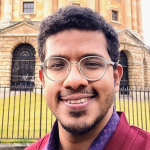Course Information
- 2023-24
- CUL213
- 5-Year B.A., LL.B. (Hons.), 3-Year LL.B. (Hons.), LL.M., Master's Programme in Public Policy
- III, IV, V
- Nov 2023
- Elective Course
DESCRIPTION
As cities become key sites of political, economic, and social power, it is important for students of law to have a critical understanding of how the law regulates and impacts urban development. The laws and policies governing the city can shape the direction, form, and nature of urban development and contribute to making cities economically dynamic, environmentally sustainable, and socially inclusive. They create the institutions, establish the norms, and enable the processes that govern the various activities in a city. Hence, examining the legal framework of urban development can help us understand the boundaries within which multiple urban actors contest and pursue their objectives.
This course seeks to provide a grounded and textured understanding of how the law interacts with the sites and processes of urban development. It examines the operation of urban law from a “Law in Context” approach that recognises that legal norms and institutions influence and are influenced by political, economic, social, and cultural contexts. While on the one hand, social science enquiries on cities have not paid sufficient attention to how laws and policies shape urban development, on the other, legal scholarship has mostly ignored the spatial dimensions of law. Through an interdisciplinary approach, this course seeks to bring social science and legal enquiries on urban development together and provide an integrated perspective of the theory and practice of governing the city.
This course will critically examine the relationship between law and the city, analyse how laws and policies regulate various dimensions of urban development, and discuss the possible pathways for realising urban justice. Such an examination will allow students to gain a situated understanding of how the law can enable or impede the formation of a just city.
Prerequisites:
This is a stand-alone course for advanced students of law, especially in their 4th and 5th years. There are no requirements to have undertaken any specific courses previously, but this course will be of particular interest to students who have already undertaken courses on public law and inter-disciplinary courses on law and society.
Reading Materials:
This course will use a mix of scholarly works from social sciences and law as well as materials like statutes and case laws. Each session will have two scholarly pieces in the form of journal articles and book chapters that discuss specific dimensions of urban development and law. From Week 4 onwards, each session will also use primary sources that constitute “urban law”, which includes constitutional texts, statutes, judgments, regulations, and policy documents. Through such a mix of reading materials, the course seeks to provide a theoretical understanding of the relationship between law and the city as well as expose students to the diversity of legal instruments that govern the city.
Pedagogy:
The course will be primarily delivered through classroom lectures and discussions. Students are expected to have read the reading materials prescribed for the week beforehand to enable meaningful conversations in class. Discussions will often take the form of a Socratic method to stimulate debates on key questions and arrive at a shared understanding of the concepts.
Module Structure:
This course is divided into three modules. The first module (Weeks 1 to 4) will examine the relationship between law and the city, discuss the meaning of legality in the context of urbaninformality, and analyse the constitutional framework and evolution of urban governance in India. Building on this broad understanding, the second module (Weeks 5 to 8) will explore how the law regulates and impacts various sectors and dimensions of urban development like urban planning, public spaces, housing, land, transport, sanitation, environment, and climate change. The final module (Weeks 9 to 10) will discuss normative questions regarding urban development and explore possible pathways for realizing urban justice.


